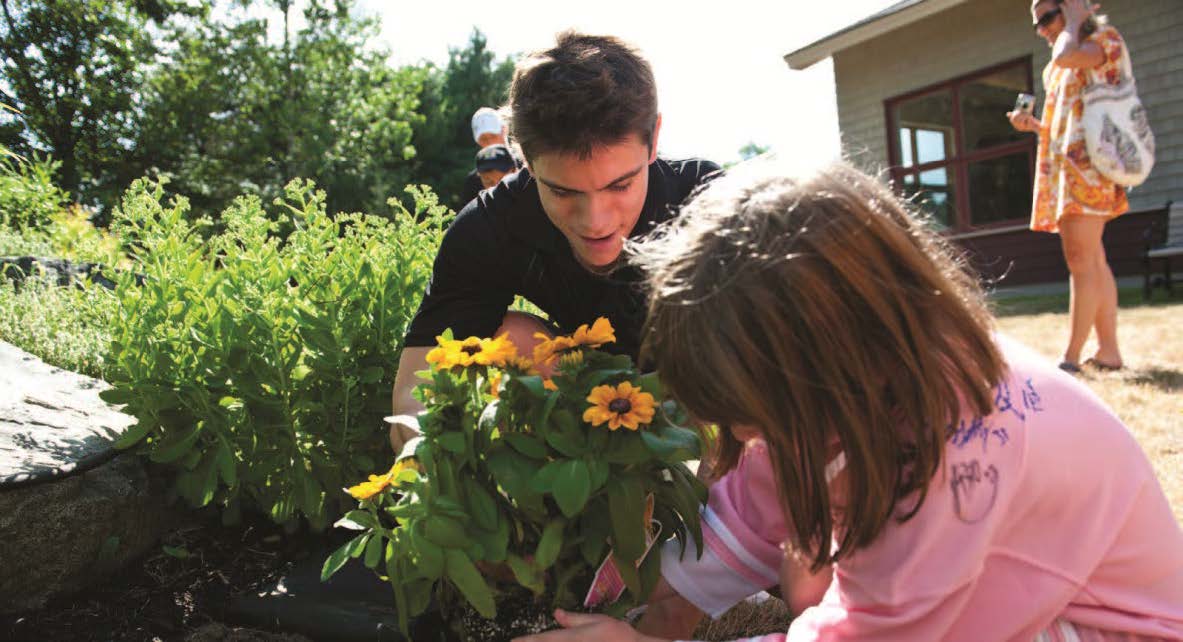Anytime STEM Learning: Supporting Science, Technology, Engineering & Math in Libraries
Provide hands-on STEM learning to youth.
 Grant Amount:
Grant Amount:
$10,000 - 15,000
Time Range:
1 year
Eligibility:
Public and School libraries
Staff Contact:
Program Description
Libraries can offer science learning experiences that enrich the STEM learning ecosystem. Children are the center of a model that shapes and influences the pace of their learning based on their interests. This program will allow libraries to offer hands-on, inquiry-based experiential learning and connect STEM to everyday life outside of formal educational settings.
Three Focus areas are:
- “Full Steam Ahead” programs that target ages 0-5 should collaborate with local preschools, museums, businesses, and others as appropriate to promote improved STEAM learning. Projects require at least eight science-based programs and include activity stations featuring simple STEAM topics. Additional activities might include creating a StoryWalk®, development of STEAM kits, LEGO contests and science programming using outside performers. Projects should create an environment that engages the natural curiosity of young children to observe, experiment, build, solve problems, make predictions and explore sequence, pattern and design. Adult caregivers will serve as facilitators, but the emphasis is in allowing children to engage in activities that provide an ongoing foundation for brain development.
- “Science is Everywhere” programs target kindergarten to grade eight and are appropriate for public or school libraries. Libraries will work with a science educator or person with appropriate skills to develop at least eight science-based programs. Libraries will coordinate activities with their public or school library counterpart. Funds may be used to increase the collection of print and non-print materials that reflect STEM topics.
- “Mixing in Math” will allow libraries to expand their resources and programming to improve support for math for ages 0-8 by adding theories and materials seamlessly to their existing offerings. According to recent research outlined in Reimagining School Readiness* supporting strong math skills at an early age predicts long term success in school. Funds can be used to purchase resources that will incorporate math concepts into traditional story time and programming activities thus supporting a growth mindset that everyone can be successful at math. New collections may include songs, books, and board games featuring math concepts and inclusion of underrepresented individuals who were math pioneers. Other resources might include kits, blocks, and other building materials such as Legos that promote spatial learning. Programs and materials that support Minecraft activities could be established or enhanced.
Additionally, libraries should look for support from museums and local business/industry as appropriate and work to provide specialized museum passes and outside programming. The project may include one or more field trips to local museums, planetariums or appropriate science institutions. Family programs featuring speakers on relevant STEM topics may also be offered to the wider community as part of this project. School libraries must have a certified school librarian as project director to be eligible for the “Science is Everywhere” program.**
Background
An explosion of out-of-formal school programs are taking place in settings such as local preschools, Boys and Girls Clubs, YMCA/YWCA sites and in public libraries. These programs have a positive impact on youth development by enabling students to be introduced to project-based learning activities frequently missing from traditional school programs. Programs designed to meet our country’s future needs must begin in communities where young children are introduced at an early age to a range of opportunities that will promote the next generation of engineers and technologists. Early exposure to exciting career choices could also expand the number of women, minorities and low-income students entering STEM professions. Even the youngest children can take an early look at “frontier occupations” such as alternative energy, green transportation, biotechnology, nanotechnology, robotics, or aquaculture. Library programs that support the importance of science and technology can help encourage an interest in these very important content areas and provide a place to explore hands-on STEM activities outside the classroom in a setting that is both fun and informative.
* Reimaging School Readiness https://bayareadiscoverymuseum.org/resources/educator-resources/library-toolkit
** Consider content such as Scienceflix that can be used by patrons online as well as in-library use to pursue STEM activities.
Connect with national organizations such as NASA, Smithsonian, 4-H that provide robust online curriculum
Create a LibGuide showcasing online STEM programs such as Newton Library’s Virtual Makerspace and Online STEM program
